5 big questions entering the 2022-23 NHL season
Most of our big questions heading into the 2021-22 NHL season were answered in fascinating fashion.
No, the Tampa Bay Lightning didn't three-peat, but they came very close. The Jack Eichel saga ended when the Buffalo Sabres traded him to the Vegas Golden Knights. Connor McDavid followed up his historic 2020-21 season with a 123-point effort, winning his second straight Art Ross Trophy and fourth in total.
The Toronto Maple Leafs didn't win a playoff series, failing to reach the second round for a sixth consecutive year as Tampa eliminated them in seven games. COVID-19 did impact the league, but not to the degree it did in the two previous campaigns.
With those queries resolved, there are a handful of new ones for the upcoming season. Here are five big questions heading into 2022-23:
Can the Avalanche run it back?
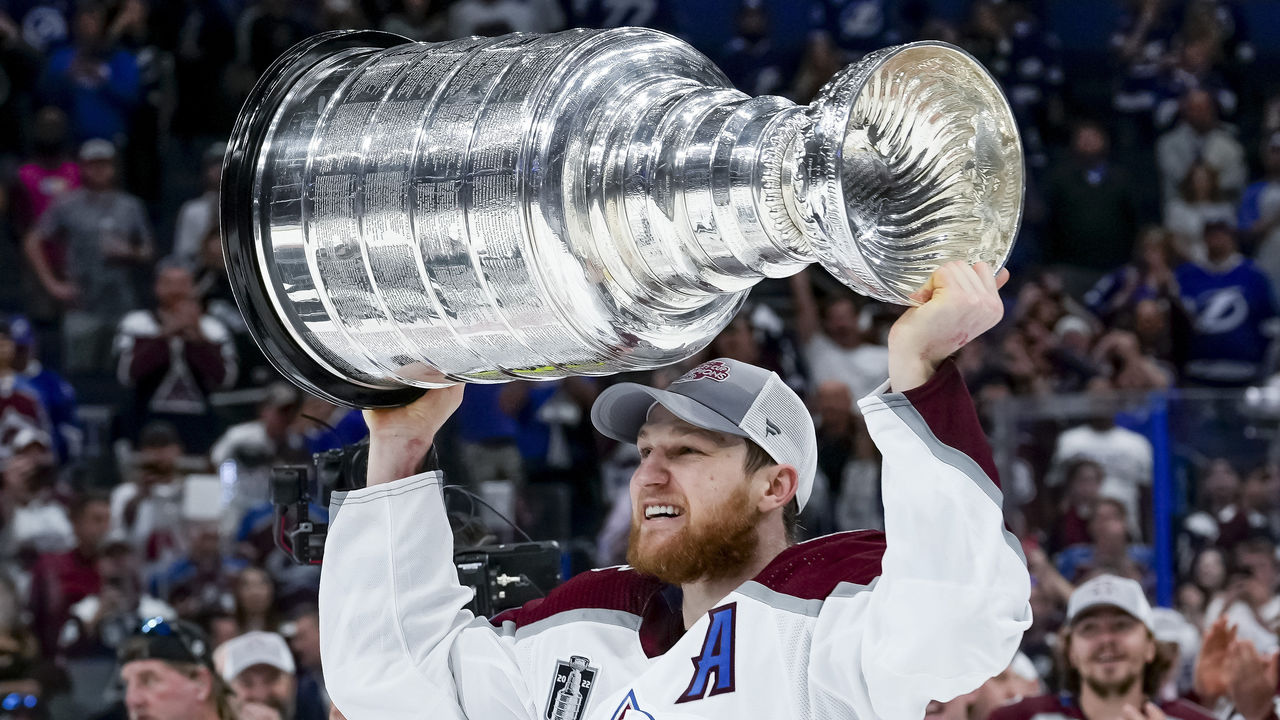
The Colorado Avalanche finally vanquished their playoff demons and won the Stanley Cup for the first time since 2001. After an offseason in which they lost Darcy Kuemper, Nazem Kadri, and Andre Burakovsky in free agency, can they defend their title?
Colorado is still extremely deep on paper, with an elite core featuring Nathan MacKinnon, Cale Makar, Mikko Rantanen, Gabriel Landeskog, and Devon Toews. Trade-deadline acquisition Artturi Lehkonen and breakout winger Valeri Nichushkin are still around (the latter with a new eight-year deal) and should help ease the pain of the summer departures.
The biggest unknown is in the crease, where former New York Rangers netminder Alexandar Georgiev and incumbent backup Pavel Francouz will try to fill the void left when Kuemper joined the Washington Capitals.
It's possible the explosive Avalanche can outscore any potential issues in net. Perhaps Georgiev will have a career year. Maybe Francouz can seize the starting job. But it remains to be seen how this experiment pans out.
Who will win the Flames-Panthers blockbuster?
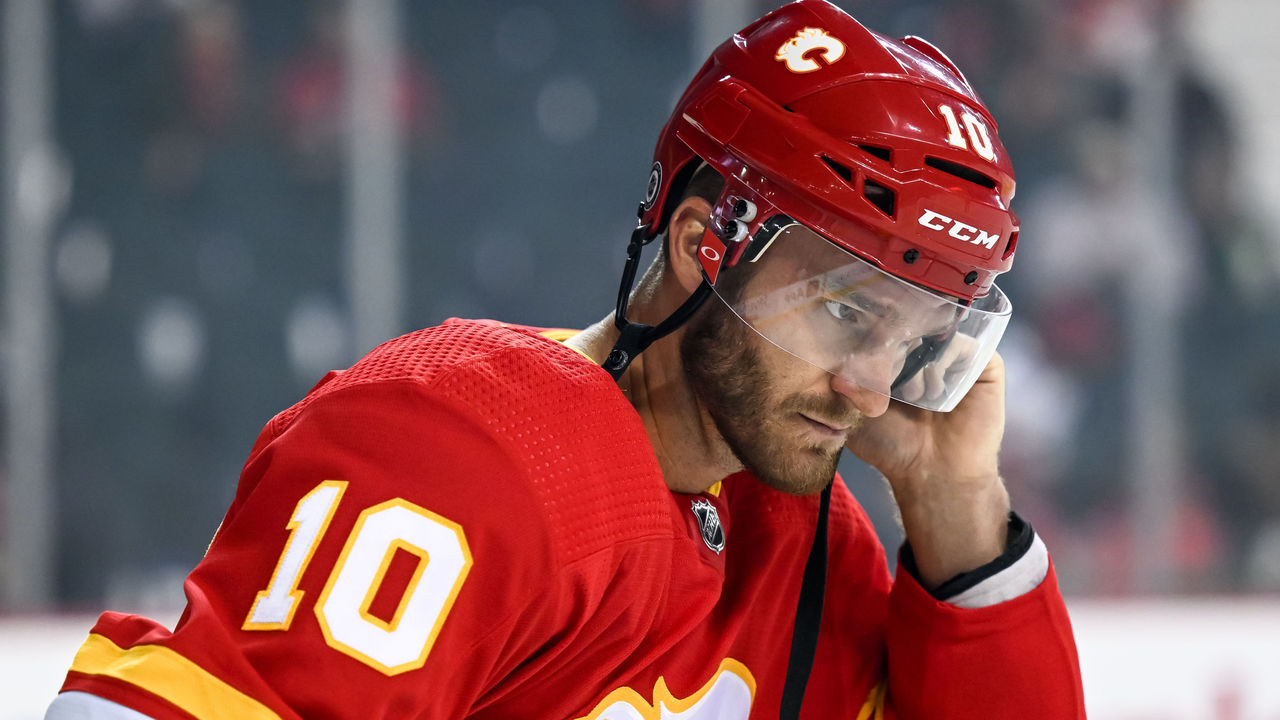
The Calgary Flames and Florida Panthers completed a July mega-trade that shocked the hockey world and likely impacted both teams' fortunes significantly. It will take more than one season to determine who "won" the deal that sent Matthew Tkachuk to Florida and brought Jonathan Huberdeau and Mackenzie Weegar to Calgary. But which team will benefit more in 2022-23?
The Flames faced the possibility of an underwhelming return for Tkachuk - after watching Johnny Gaudreau walk out the door, no less - because it was public knowledge he wanted out. But Calgary general manager Brad Treliving managed to snag Huberdeau, one of the league's best playmakers coming off a 115-point campaign, and Weegar, a top-pairing defenseman who should be capable of shouldering the heaviest workload on the Flames' back end.
Calgary is still deep enough to defend its Pacific Division title, which is pretty remarkable given the team's offseason rollercoaster. The deal appears to be a step backward for the Panthers, though. They didn't get fleeced, having landed a rare talent in Tkachuk who's adept at both creating offense and getting under opponents' skin. But losing Huberdeau and Weegar arguably made them worse.
Florida remains a very good team with a solid goaltending duo, brilliant two-way dynamo Aleksander Barkov at center, and the excellent Aaron Ekblad on defense. But the rest of the Panthers' back end is concerning - particularly on the left side. Though this club can make the playoffs, it seems highly likely the Flames will go further.
How good will the Blue Jackets be?
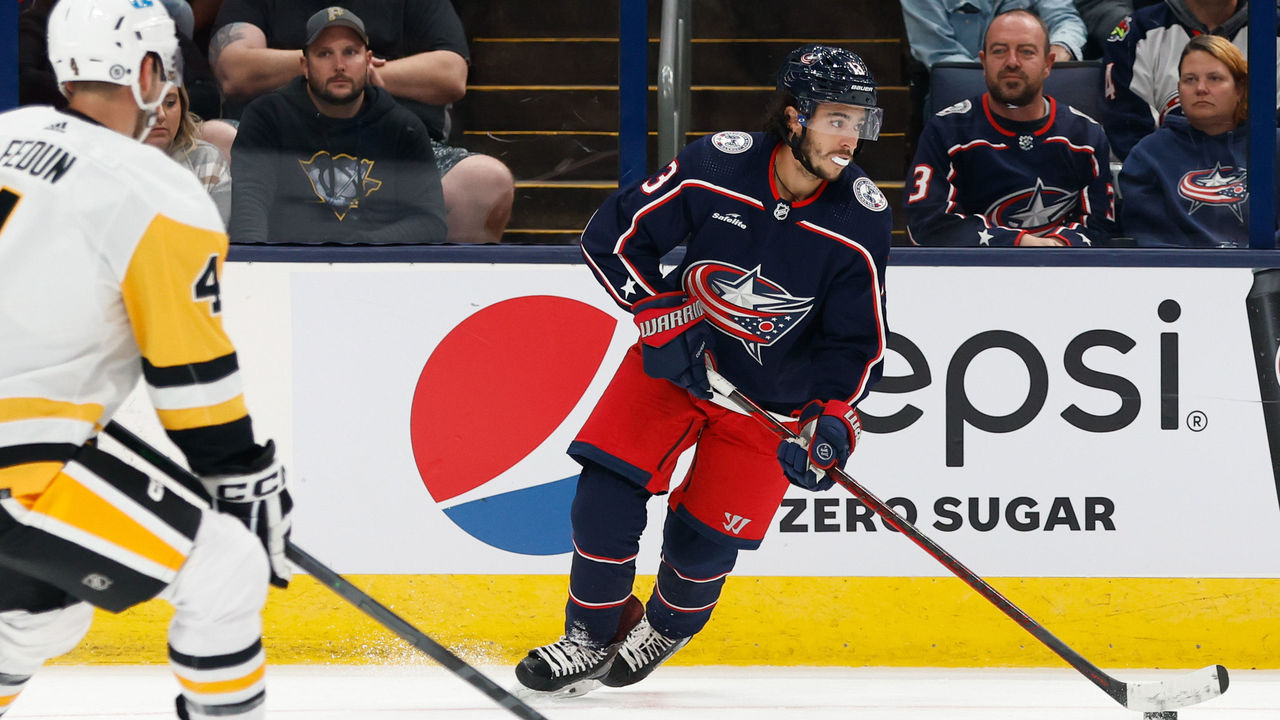
Everyone knows Gaudreau's arrival should give the Columbus Blue Jackets a major lift, but how much better will they actually be in 2022-23?
Gaudreau added 5.5 wins above replacement and scored 31.3 goals above replacement for the Flames last season, both of which ranked second in the NHL. In addition to his 40 goals and 75 assists, the Hart Trophy contender ranked 14th in the league in both individual expected goals at five-on-five (18.03) and expected goals for percentage in the same situations (59.2).
The Blue Jackets posted a 37-38-7 record in 2021-22, collecting 81 points and finishing sixth in the Metropolitan Division. Theoretically, with five extra wins from Gaudreau (we'll round down to be conservative), Columbus would have finished fifth with 91 points. The Blue Jackets would have leapfrogged the New York Islanders but still finished nine points behind the fourth-place Washington Capitals.
Trading away a 28-goal, 57-point player in Oliver Bjorkstrand cost Columbus 1.5 WAR, but the team surprisingly gained 0.7 by signing Erik Gudbranson. So while Bjorkstrand's departure is certainly notable, it shouldn't have a devastating effect on the team's win total.
Gaudreau and Patrik Laine will give opponents plenty of matchup nightmares. But unless one of the Metro's top four clubs from last season has an unexpectedly poor campaign, the Blue Jackets aren't likely to make the playoffs. A wild-card berth will also be a stretch considering the competition in a loaded Atlantic Division. Columbus should make strides this season with its big-ticket signing. Reaching the postseason is another story.
Who will win the Connor Bedard sweepstakes?
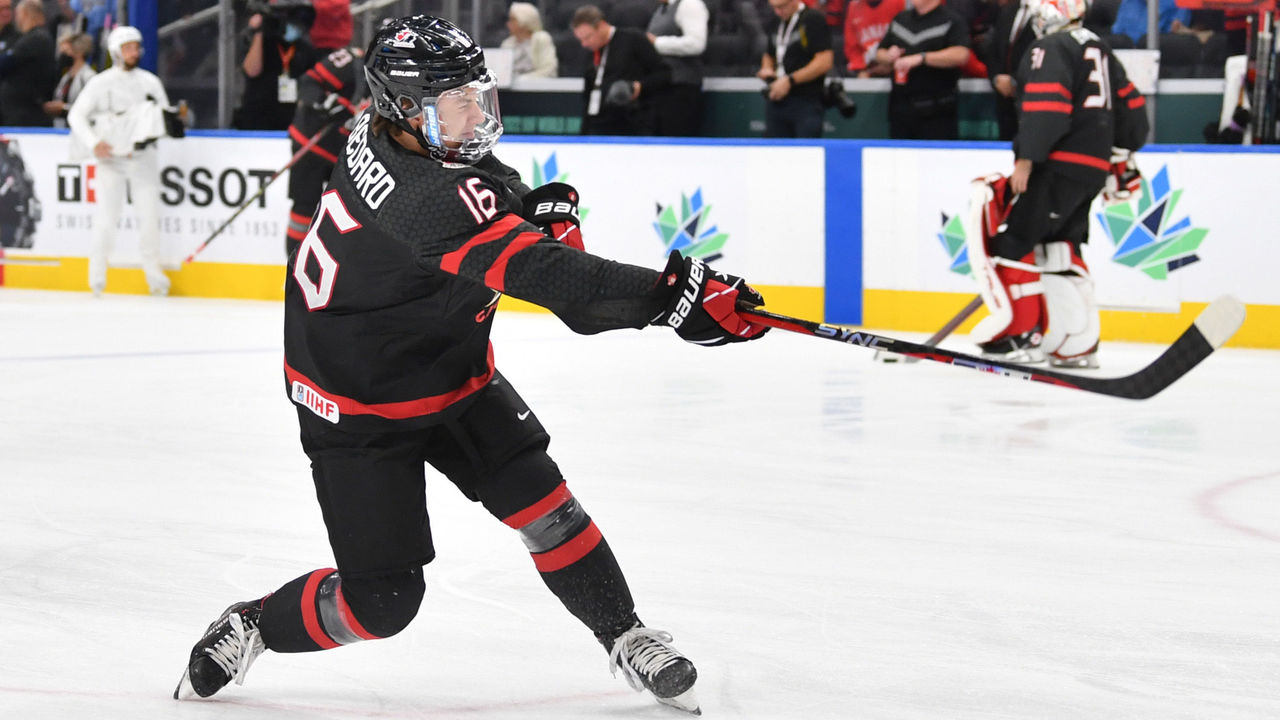
Another "generational talent" is projected to go first overall in next year's draft, and teams are already salivating over the chance to select Connor Bedard.
If there's one team blatantly chasing the first overall pick, it's the Chicago Blackhawks. They all but gutted their roster this offseason, parting with several impact players including two-time 41-goal scorer Alex DeBrincat. The lineup is now quite bare aside from franchise cornerstones Patrick Kane and Jonathan Toews (more on them below), as well as Seth Jones.
Then there are the Arizona Coyotes, who always seem to be in the lottery mix but have never actually won it. This could the year, as last season's second-worst team hasn't really improved. Conversely, the Montreal Canadiens - who finished dead last in 2021-22 - figure to be better, with their encouraging young core developing further over a full campaign under head coach Martin St. Louis.
The Seattle Kraken should be better, too. The second-year squad acquired Bjorkstrand from the Blue Jackets, while youngsters Matty Beniers and Shane Wright are both primed to make an impact. Of course, finishing last doesn't guarantee a lottery win. No management team will ever admit to tanking, and no players actively attempt to lose on the ice. But the hunt for Bedard will be a subplot all season.
Will Kane and Toews be traded?
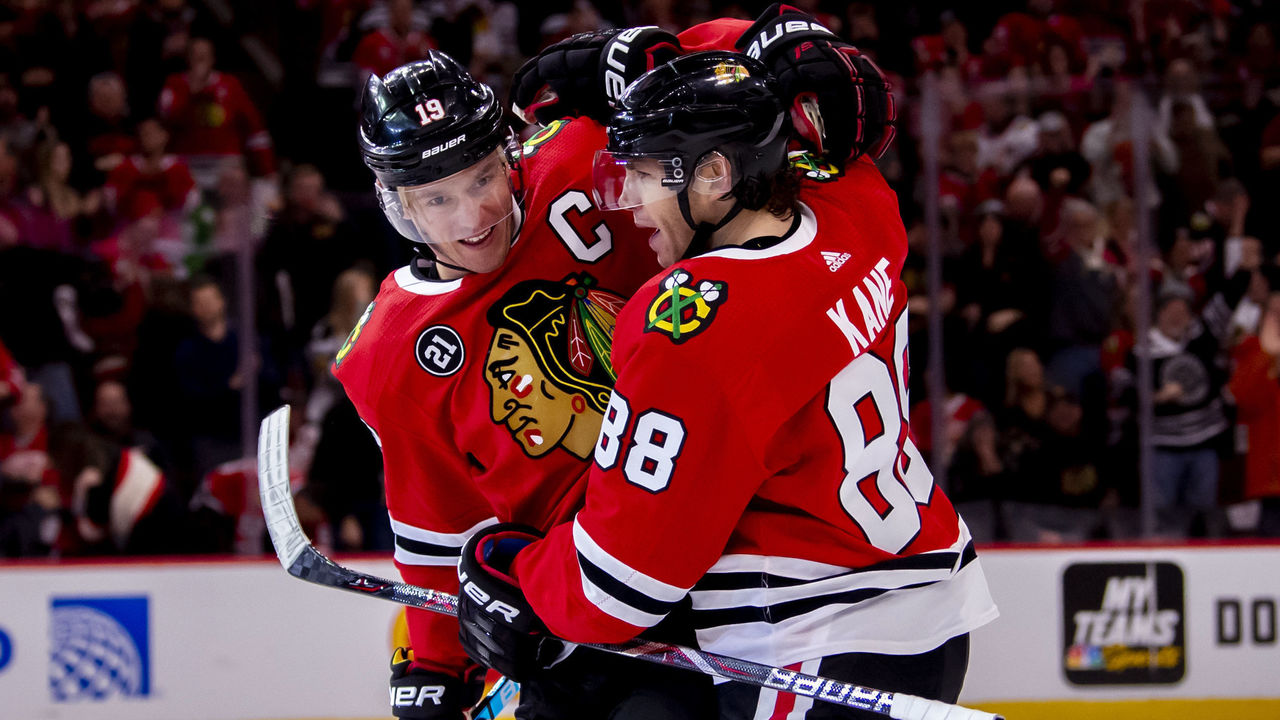
Considering the Blackhawks' shameless teardown, it wouldn't shock anyone if the faces of the franchise are playing for other teams after the March 3 trade deadline. That said, it's entirely possible they both choose to finish their careers in Chicago.
Kane and Toews have nothing left to prove on the ice. They both played integral parts in Chicago's three most recent Stanley Cup championships, so going elsewhere to win may not be as critical to them as it is for veterans who have never won. But one or both of the Blackhawks' stars may still have the hunger to go on a deep playoff run and prove they can help multiple franchises claim the ultimate prize.
Toews certainly doesn't sound like he'll be in the Windy City beyond the deadline. The 34-year-old Blackhawks captain said in July that Chicago's five-year rebuild plan "doesn't sound appealing" to him at all; it wasn't a ringing endorsement of general manager Kyle Davidson's vision, but much can change in five months.
Kane, who turns 34 in November, could see the value in retiring with the only NHL team he's ever known. It's a rarity in today's game. The opportunity to mentor Chicago's prospects and end his career with the Blackhawks could be appealing for the winger - and even for Toews if the center has a change of heart. Either way, their futures will be a major talking point this season.
(Analytics sources: Evolving Hockey, Natural Stat Trick)